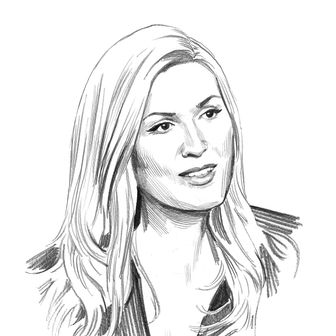
New York Is Committed to Covering This Essential Moment
We’ve removed our paywall from this and other stories about police brutality and systemic racism. Consider becoming a subscriber to support our journalists.
By the standards of the pandemic, Thursday had been a normal day for Peter Weinberg. A 49-year-old finance marketing executive, he worked from his home in Bethesda, Maryland, right outside of the District of Columbia, staying busy with Zoom meetings and the new rituals of our socially isolated world.
Then, around 10 p.m., he received an irate message on LinkedIn from someone he didn’t know. He brushed it off, thinking it was probably just spam. Then he got another. And another. The third message was particular strange, as it mentioned something about the cops coming to find him. Perplexed, he watched as the messages continued to pile up. They were all so similar: angry, threatening, accusatory. His profile views suddenly soared into the thousands.
He began to panic. He decided to check Twitter. Although he’d had an account for more than a decade, Weinberg didn’t use the social platform very much. He mostly followed mainstream news outlets, politicians from across the ideological spectrum, entrepreneurs, and financial analysts. He had what you might call “low engagement.” But not anymore.
In his mentions, disaster was rapidly unfolding. People accused him of assaulting a child. Of being a racist. They shared a selfie he’d taken in sunglasses and his bike helmet and analyzed it alongside blurry images of another man in sunglasses and a bike helmet.
The other guy had been captured on video hitting children and ramming his bike into an adult after becoming enraged that they were posting fliers around the Capital Crescent Trail in support of George Floyd, the unarmed black man killed by white police officers in Minneapolis on Memorial Day.
Weinberg hadn’t seen the viral story about the trail where he regularly biked. He didn’t know that, for several days, the video had circulated online as law enforcement crowdsourced help in locating the suspect. Now that he had seen it, he didn’t think he looked anything like this guy. And he didn’t understand why anyone thought he was him.
“You assaulted a little girl and other innocents because of your political beliefs,” one Twitter user messaged him. “Hey so are you the piece of shit who assaulted a child in Maryland today on the bicycle trail?” asked another. “Hey you racist bitch….we’re coming for you.” “You deserve to pay.” “Ur going down u disgusting piece of shit.” “Nice job assaulting a small child today. You need to be fired from your job immediately.” “YOU UGLY RACIST BITCH.”
As he attempted to piece together what was happening, Weinberg called the number for a detective provided by the Maryland-National Capital Park Police. “We are seeking the public’s assistance in identifying the below individual in reference to an assault that took place this morning on the Capital Crescent trail. Please contact Det. Lopez with any information,” read a tweet sent June 2 from the department and shared more than 55,000 times.
But the Park Police had made an error. “Correction, the incident occurred yesterday morning, 6/1/2020,” they wrote in a follow up tweet. As with most such clarifications, it had only a fraction of the reach: a mere 2,000 shares.
It was based on that initial, false information that Weinberg had become a suspect for the internet mob. To his surprise, the app that he used to record his regular rides from Bethesda into Georgetown via the Capital Crescent Trail shared that information publicly, not just with his network of friends and followers. Someone had located a record of his ride on the path on June 2, matched it to the location of the assault from the video, matched his profile picture — white guy, aviator-style sunglasses, helmet obscuring much of his head — to the man in the video, and shared the hunch publicly.
It took off. Weinberg didn’t know what “doxing” meant, but it was happening to him: Someone posted his address. Detective Lopez didn’t answer his call, but soon someone with the police department contacted Weinberg to let him know that officers would be patrolling the area around his home because he might be in danger.
Detective Lopez reached him around 11 p.m. and they agreed to meet the next morning. At 11:47, Weinberg tweeted, “I recently learned I have been misidentified in connection with a deeply disturbing attack. Please know this was not me. I have been in touch with the authorities and will continue to help any way possible.”
His fiancée in New York, he spent the night alone, refreshing Twitter, watching helplessly as people tried to destroy his life. And Weinberg wasn’t even the only one: Another man, a former Maryland cop, was wrongly accused, too. The tweet accusing him was retweeted and liked more than half a million times.
At 7 a.m., Weinberg brought his bicycle and his helmet with him to the police station. Detective Lopez told him he was free to go and the department would issue a report excluding him as a suspect.
On Twitter, Maryland attorney general Brian Frosh sent Weinberg a message. “I am sorry for what you are going through. Police have a suspect. Can I post something that would help?” Hours before Weinberg was falsely accused, Frosh had asked all of Twitter for help finding the man in the video. “If anyone can identify this man, please let me know,” he said, and nearly 50,000 people retweeted him.
“I could use any help you can give. Can we speak quickly?” Weinberg said.
On the phone, Frosh — who did not return a request for comment from Intelligencer — was empathetic. He acknowledged that he had, in some way, contributed to Weinberg’s circumstances. He sent a tweet confirming that there was a suspect and “it is not Mr. Weinberg.” (228 retweets.)
On Friday, police arrested Anthony Brennan III, a 60-year-old from Kensington, Maryland, and charged him with three counts of second-degree assault.
Weinberg told a reporter he was “dizzy” after what he went through.
“You may hear more from me in time as I reflect on this experience,” he tweeted. “For now I will say this. We must align in the fight for justice and equality — but not at the cost of due process and the right to privacy and safety.”
As for the woman who shared his home address: She deleted it and posted an apology, writing that in all of her eagerness to see justice served, she was swept up in the mob that so gleefully shared misinformation, depriving someone of their own right to justice. Her correction was shared by fewer than a dozen people.






























